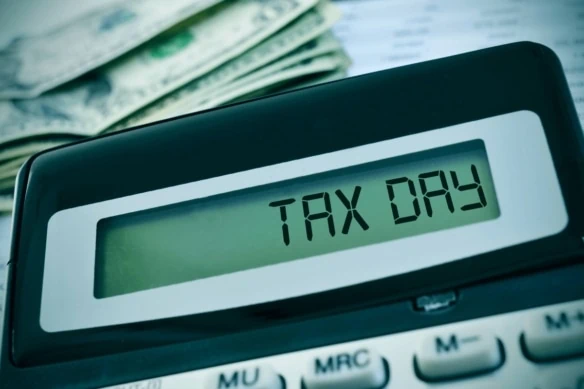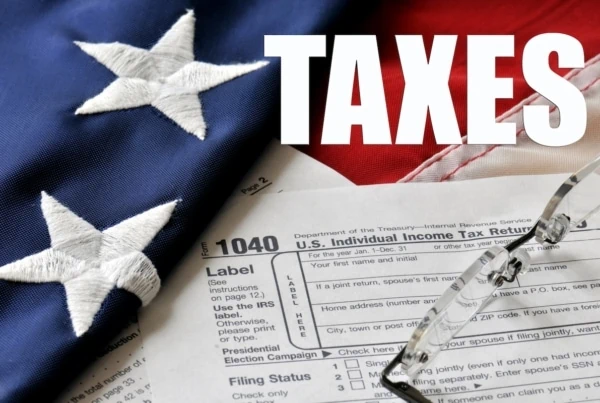While there are many tax deadlines during the year, “Tax Day” is the only one most people actually circle on their calendar. It’s the annual due date for filing your federal income tax return and paying any taxes you owe.
But for some people, there’s a pleasant surprise for Tax Day 2025—it’s a few days later than normal. So, those folks will get some extra time to file their taxes this year! (And if you’re the victim of certain recent natural disasters, you might have even more time to file your federal tax return.)
This year’s exact date isn’t the only thing you need to know about Tax Day, though. For instance, do you know how to get more time to file? What’s the best way to file your taxes? Will the IRS slap you with a penalty if you miss the tax filing deadline? When are state income taxes due?
I’ll answer these questions and more so you can navigate tax filing season with confidence. Tax Day can trigger a lot of anxiety—but it doesn’t have to. If you know what to expect and prepare in advance, you can knock out your tax return without all the unnecessary stress.
Related: Tax Preparation Checklist
Table of Contents
When Did Tax Season Begin?
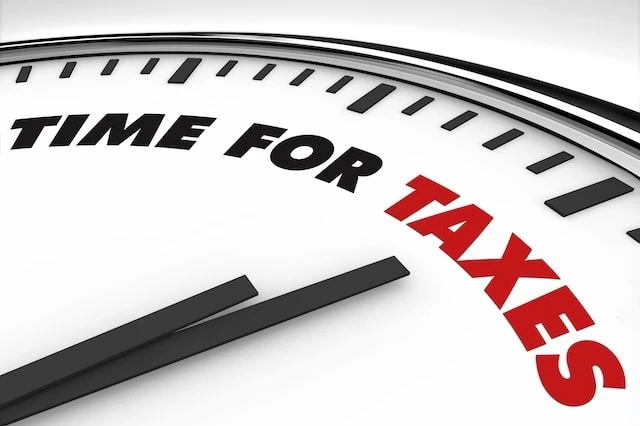
Let’s start with some basic information about tax filing season—such as when it began.
The IRS kicked off this year’s tax season on Jan. 27, 2025. That’s the date the tax agency began accepting tax returns for the 2024 tax year (i.e., returns for income earned last year). The IRS expects more than 128 million individual tax returns to be filed this year, with the bulk of them submitted before Tax Day.
However, Jan. 27 isn’t the set date for the start of every tax season. The IRS has to wait until it’s ready before tax filing season can begin. Each year they need to update computer systems, incorporate any new tax laws into tax forms and publications, hire and train seasonal staff, and more. So, tax season typically starts sometime during the second half of January. (In 2024, for instance, the IRS started to accept and process tax returns on Jan. 29.)
Related: When Should You Hire a Tax Pro? 15 Times It Makes Sense
When Are Taxes Due This Year?
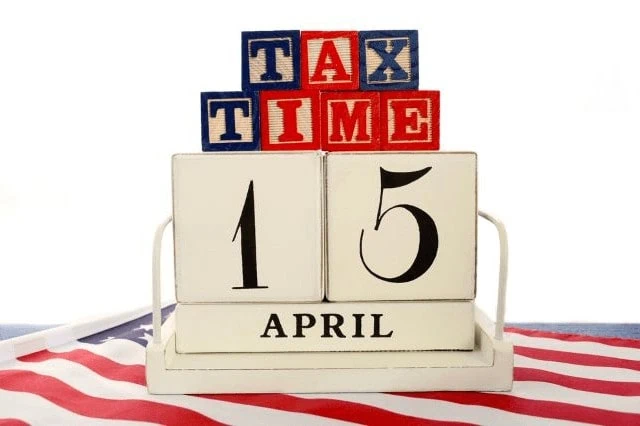
If you ask Americans when federal taxes are due, the vast majority of them will say April 15. And, for the most part, they would be right. Tax returns for the 2024 tax year are due April 15, 2025 … for most taxpayers.
Tax Filing Deadline for Natural Disaster Victims
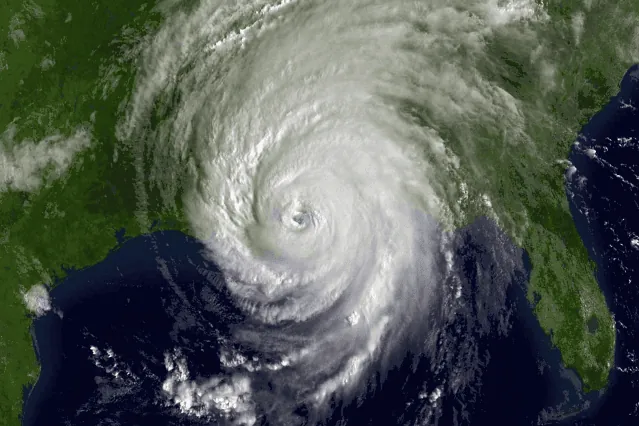
As part of an overall tax relief package, victims of certain natural disasters are usually given more time to file various federal tax returns. The extended tax deadlines only apply to people who live or have a business in a location declared a federal disaster area by the Federal Emergency Management Agency (FEMA).
The new tax deadlines typically apply to all original filing due dates (and related tax payments) within a designated time period following the disaster. For people impacted by the following natural disasters, this includes the April 15, 2025, deadline for filing federal income tax returns, which is now extended to May 1, 2025:
- Hurricane Helene
- Hurricane Milton
- Storms and flooding in Chaves County, New Mexico
- Flooding in Alaska
Related: Federal Tax Brackets and Rates
More Time for Victims of Terrorist Attacks in Israel

Qualifying taxpayers impacted by the terrorist attacks in Israel that began on Oct. 7, 2023, have until Sept. 30, 2025, to file their federal income tax return this year.
The extended due date is available to the following people:
- Any person whose principal residence is located in Israel, the West Bank, or Gaza (covered area)
- Any person affiliated with a recognized government or philanthropic organization and who is assisting in the covered area (e.g., as a relief worker)
- Any person whose tax return preparer or records necessary to meet a tax deadline are located in the covered area
- Any person visiting the covered area who was killed, injured, or taken hostage during the terrorist attacks
- Any spouse of an affected person, but only with regard to a joint return of married couple
The IRS will use previously filed tax returns to identify people whose principal residence is in the covered area. The tax relief will automatically be available to these taxpayers. Other people should call the IRS disaster hotline at 866-562-5227 to request relief (international callers can dial 267-941-1000).
Related: Do You Even Have to File a Tax Return This Year?
Get a Tax Extension If You Can’t Meet the Deadline

Don’t worry too much if you can’t meet the April 15 tax deadline. You can always get a tax extension that will push this year’s federal tax filing deadline to Oct. 15, 2025. And you don’t even need a good reason to get an extension—it’s automatically granted to taxpayers requesting one by either:
- Filing Form 4868
- Sending an electronic tax payment to the IRS
However, you must make a proper request for a tax extension no later than April 15, 2025.
It’s also extremely important to remember that these automatic tax extensions only push back the date for filing your tax return. They don’t extend the deadline for paying taxes. So, if you expect to owe taxes for the 2024 tax year, you need to estimate your 2024 tax liability and send that amount to the IRS by the April 15 deadline.
Hiring a Tax Preparer

Now that you know when your federal income tax return is due, it’s time to start thinking about how you’re going to file it.
If you’re going to hire someone to prepare and file your taxes, make sure that person is a qualified tax professional. The best way to do that is to hire a credentialed tax preparer, such as a CPA, enrolled agent, or tax attorney. Check out the IRS’s Directory of Federal Tax Return Preparers with Credentials and Select Qualifications for help finding a qualified tax preparer near you.
Also make sure you ask about the fees before hiring a tax professional. The complexity of your return, the preparer’s experience, and various other factors drive your bill up or down. If you can’t get an exact quote, at least make sure you understand the overall pricing structure (e.g., charged by the hour, by the number of forms required, etc.). Also make sure you understand what’s included in the price and what’s not (e.g., state return, e-filing fees, audit support).
And whatever you do, don’t hire a tax preparer if his or her fee is based on a percentage of your tax refund, you’re asked to sign a blank tax return, or he or she won’t sign and include a Preparer Tax Identification Number (PTIN) on your completed return. Those are big red flags about the preparer’s honesty and credibility!
DIY Tax Preparation
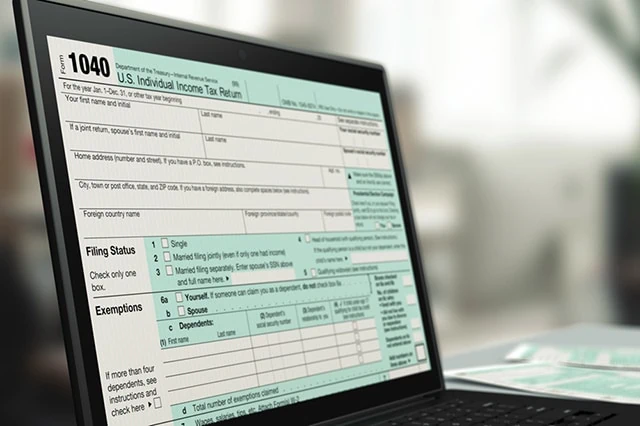
Don’t want to hire a tax preparer? No problem. There are a number of choices for “do-it-yourselfers” who want to complete and file their own tax return.
One option is to complete a paper return and send your return to the IRS through the regular mail. However, we strongly recommend that you don’t do this. Paper returns take more time on your end. It takes more time to deliver them. They can get lost much more easily. It takes the IRS much more time to process them. They’re more susceptible to fraud. Need I go on?
Instead, pick one of the many tax software products available, such as TurboTax or H&R Block. These products will walk you step-by-step through the tax return process and even help you file electronically. Tax software products can vary widely in terms of price, functionality, and features, but you can check out our list of the best tax software available this tax season if you need help choosing the right program for you.
Some people can even use certain tax software products for free through the IRS Free File program. You initially qualify for free software this year under the IRS Free File program if your 2024 adjusted gross income is $84,000 or less. However, note that each tax software provider participating in the IRS Free File program has its own set of eligibility requirements, which can be based on your age, your income, the complexity of your tax return, or other factors. Eligibility rules for each program participating in the IRS Free File program, along with a selection tool, are available on the IRS website.
If you don’t qualify for free tax software under the IRS Free File program, you can still access tax forms at no cost on the IRS Free Fillable Forms website. They are available to everyone, regardless of your income level. Be warned, however, that there’s no guidance provided with these forms, so you pretty much have to know what you’re doing if you select this option.
Finally, new this year, the IRS has introduced its own tax software through a pilot program called IRS Direct File. The software is similar to commercial tax prep software products already on the market (e.g., it uses an interview-based, question and answer format). Unfortunately, this software is only available to taxpayers with relatively simple tax returns in 12 states. It will also be rolled out in phases, so it won’t be widely available in participating states until mid-March.
Related: Earned Income Tax Credit (EITC) – How Much, Eligibility + More
Tax Refunds
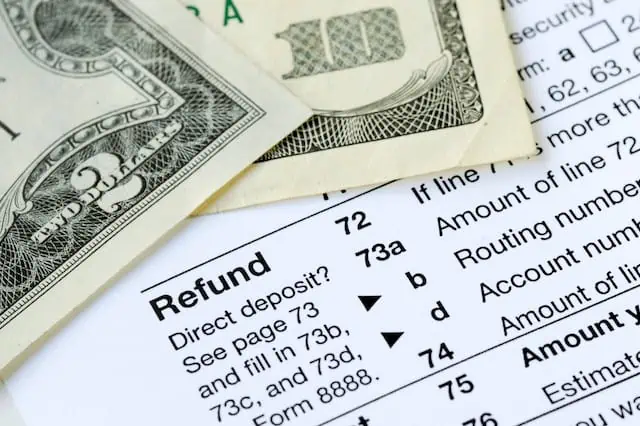
Congratulations if you’re getting a tax refund this year. If you want to receive it faster—typically within 21 days—make sure you file electronically and choose direct deposit. Filing electronically allows the IRS to process your return more quickly, and direct deposit speeds up the delivery of your tax refund payment. You’ll have to give the IRS your bank account information if you request direct deposit, though.
Once you file your return, you can track the status of your tax refund using the IRS’s Where’s My Refund tool. To access the tool, you’ll need to provide your Social Security or taxpayer ID number, your filing status, and the exact tax refund amount reported on your return. You can also check the status of your refund on the IRS2Go mobile app.
YATI Tip: By law, the IRS can’t issue your tax refund before mid-February if you claim the earned income tax credit or the additional child tax credit on your return. The entire tax refund is delayed, not just the portion attributed to the credit(s). However, according to the IRS, most refunds will be available in bank accounts or on debit cards by March 3 this year for taxpayers who select direct deposit for their refunds (assuming there are no other issues with their tax return).
And have you thought about what you’re going to do with your tax refund? How about saving or investing it! You can actually direct part of your tax refund into an individual retirement account (IRA), health savings account (HSA), Archer medical savings account, Coverdell education savings account, or TreasuryDirect account. You can also buy up to $5,000 of Series I savings bonds. Submit Form 8888 with your tax return to use your tax refund in any of these ways.
Related: 11 Ways to Avoid Taxes on Social Security Benefits
Paying Taxes
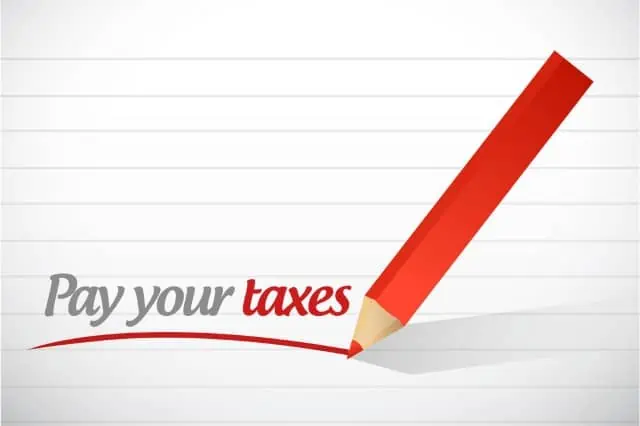
For most people who owe taxes this year, April 15, 2025, is also the due date for paying the IRS (even if you get a tax extension). There are several ways to pay taxes, including by:
- Check
- Money order
- Phone
- Online IRS account
- Bank account transfer
- Debit Card, credit card, or digital wallet (e.g., PayPal)
- Tax software
- IRS2Go mobile app
- Electronic Federal Tax Payment System (EFTPS)
Related: 2025 Tax Calendar (Tax Deadlines for the Entire Year)
What If You Can’t Pay Taxes On Time?

There are a few options to consider if you can’t pay your income tax bill by the April 15 deadline. You can apply online for a payment plan. You can also file Form 9465 to request an installment plan.
In some cases, the IRS will extend your payment deadline for up to six months. However, you have to show that paying the tax on time would create an “undue hardship.” Generally, that means you’ll have a substantial financial loss if you pay your tax when it’s due (e.g., forced to sell property at a significantly reduced price). Use Form 1127 to request a payment extension.
Other options if you can’t make your tax payments include an “Offer in Compromise” or a temporary delay of the collection process.
Penalties for Missing the Federal Tax Deadline
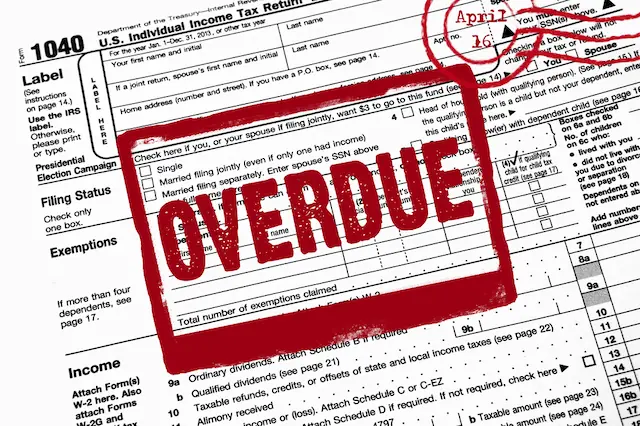
Be prepared to pay a price if you don’t file your 2024 federal income tax return or pay any tax due by April 15, 2025. The penalty for filing your federal return late is 5% of any unpaid tax per month (up to 25% of the amount owed). Plus, the penalty for paying federal income taxes late is 0.5% of the unpaid amount per month (again, up to 25% of the amount due). Other penalties may also apply, and Interest is charged for any unpaid taxes, too.
These penalties are subject to adjustment, though. For instance:
- If both penalties apply in the same month, the penalty for filing late is reduced by the amount of the penalty for paying late (e.g., instead of a 5% late-filing penalty, you would pay a 4.5% penalty for filing late and a 0.5% penalty for paying late).
- If your federal return is filed more than 60 days late, the minimum late filing penalty is the lesser of $485 (for returns required to be filed in 2025) or 100% of the tax owed.
- If you file your tax return on time and have an approved payment plan, the late payment penalty is reduced to 0.25% per month during the payment plan period.
- If you don’t pay your tax within 10 days of receiving a levy notice from the IRS, the late payment penalty jumps to 1% per month.
In some cases, the IRS can waive or lower a penalty. You generally must show that you acted in good faith and had “reasonable cause” for failing to file or pay on time (think fire in your home, natural disaster, serious illness, and the like). Interest can’t be waived or reduced unless the penalty is waived or reduced first.
Related: 11 Education Tax Credits and Deductions
Estimated Tax Payments Also Due On April 15
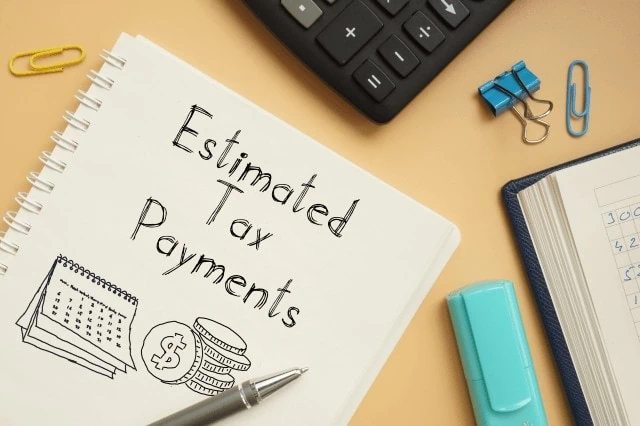
If you’re self-employed or don’t have taxes withheld from other sources of taxable income (e.g., interest, dividends, unemployment income, taxable Social Security benefits, traditional IRA distributions, and the like), you might have to pay estimated taxes periodically during the year. The first payment for the 2025 tax year is due April 15, 2025. Additional estimated tax payments for the 2025 tax year are due June 16, 2025, Sept. 15, 2025, and Jan. 15, 2026.
The first estimated tax payment that’s due on April 15 is for income earned from Jan. 1 to March 31, 2025. However, estimated tax payments aren’t due until you have income upon which you must pay tax. As a result, if you don’t have any income from January to March that wasn’t subject to withholding, then you don’t have to pay estimated taxes by April 15. Furthermore, if you don’t have any income subject to tax until August, then you don’t have to make an estimated tax payment until Sept. 15.
Related: IRA Contribution Limits for 2025
Make Contributions to IRAs and HSAs By April 15
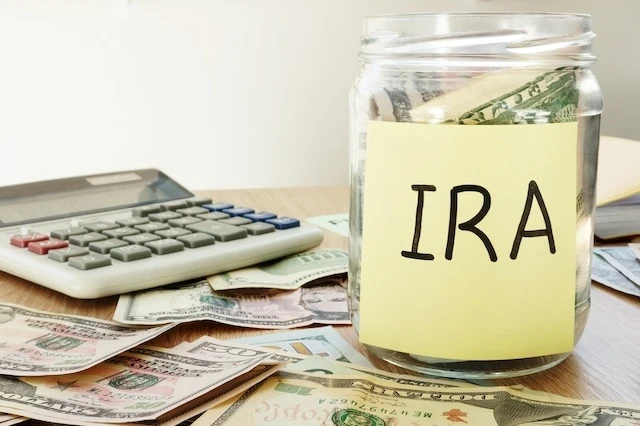
If you’re saving for retirement—we hope so if you’re not already retired—April 15, 2025, is also the deadline for contributing to an IRA or HSA for the 2024 tax year. Unless you request a filing extension, April 15 is the last day to contribute to a solo 401(k) plan or simplified employee pension (SEP) plan, too.
In addition, if you put too much money in an IRA for 2024, April 15, 2025, is the last day to pull out the excess funds before incurring a penalty, unless you requested a tax extension.
Related: How to Use Your HSA for Retirement
State Taxes
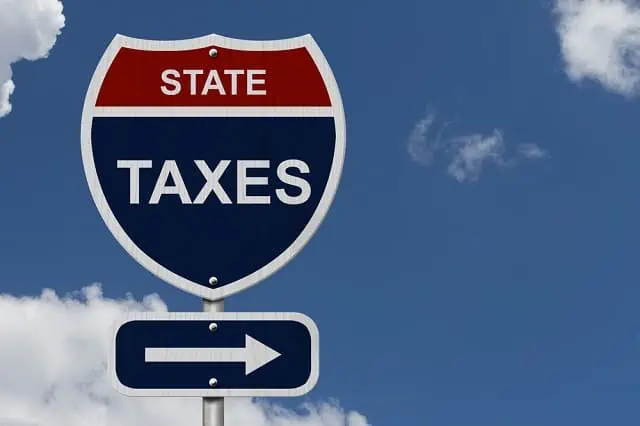
State income tax returns for the 2024 tax year are typically due on April 15, 2025, too. But, of course, there are exceptions. For example, the following deadlines apply for filing 2024 state income tax returns:
| State | Filing Deadline |
|---|---|
| Delaware | April 30, 2025 |
| Hawaii | April 21, 2025 |
| Iowa | April 30, 2025 |
| Louisiana | May 15, 2025 |
| New Mexico | April 30, 2025 (if e-filed) |
| Virginia | May 1, 2025 |
Local governments in some states might also require an income tax return.
On the other hand, Alaska, Florida, Nevada, South Dakota, Tennessee, Texas, and Wyoming don’t impose state income taxes, so no returns are due in those states. In addition, New Hampshire only taxes interest and dividends over $2,400 ($4,800 for joint filers), while Washington state only taxes capital gains above $270,000, so most taxpayers in those states won’t have to file a state tax return this year.
YATI Tip: The New Hampshire interest and dividends tax is repealed beginning in 2025.
Related:




